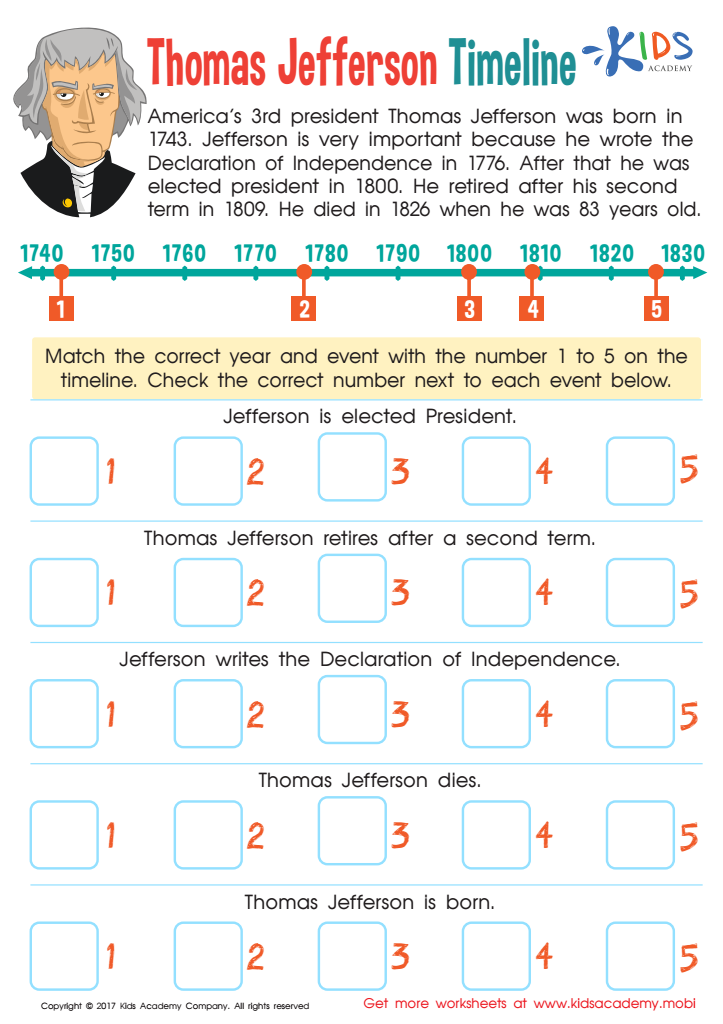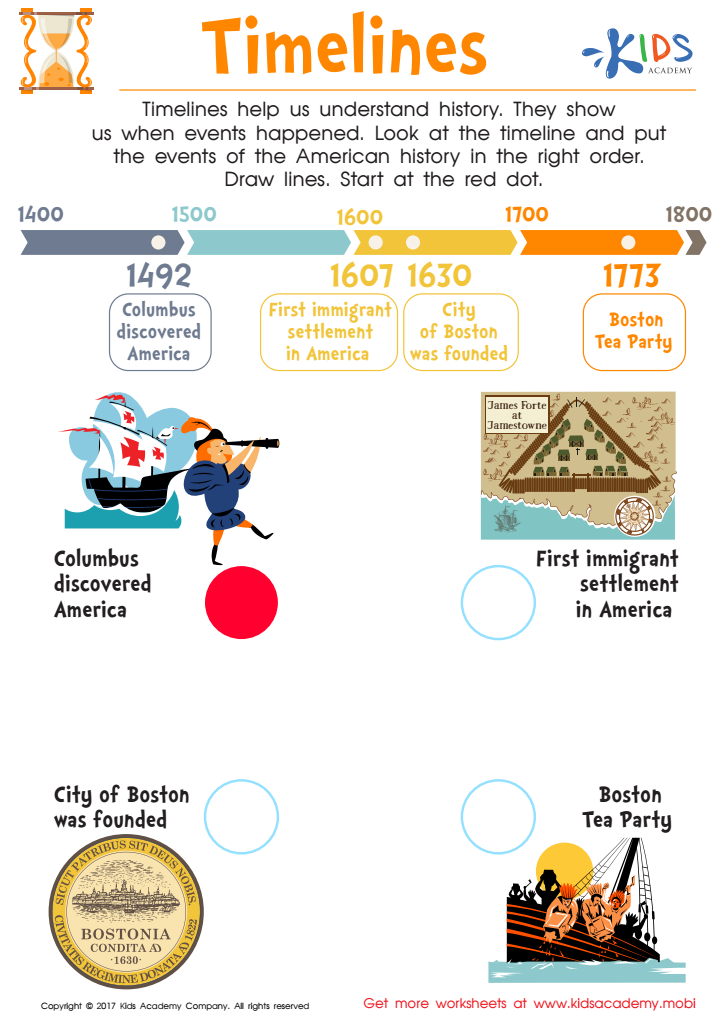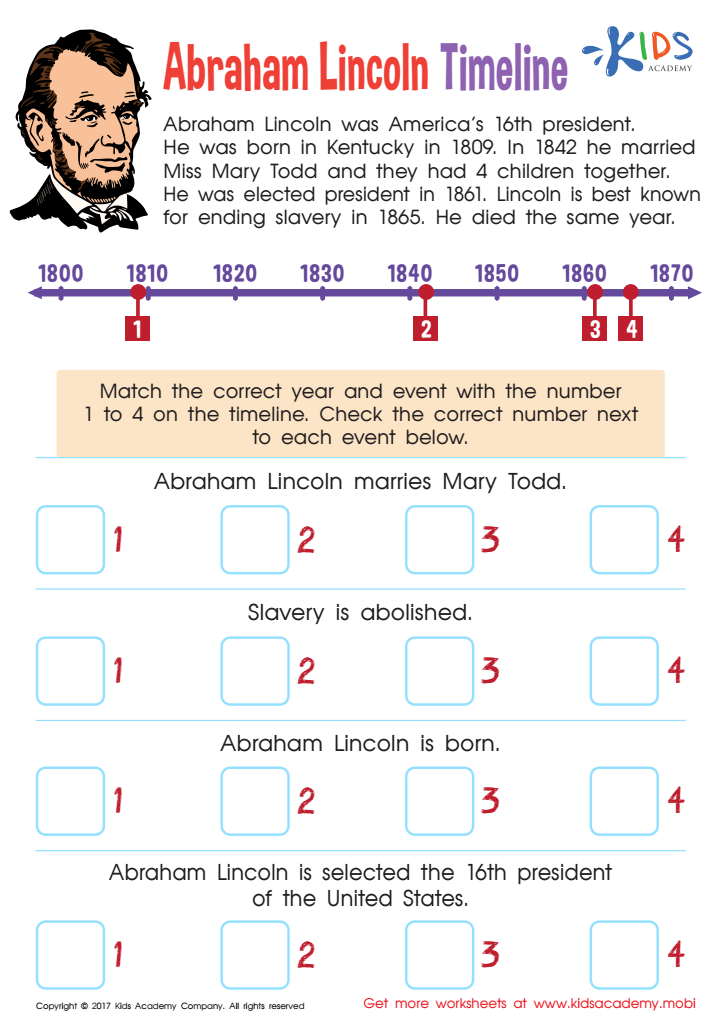Understanding timelines Normal History Worksheets for Ages 4-8
3 filtered results
-
From - To
"Understanding Timelines: Normal History Worksheets for Ages 4-8" provides engaging and educational activities designed to introduce young learners to the concept of timelines. These worksheets help children grasp the sequence of events, improve their chronological thinking, and develop a foundational understanding of history. Perfect for early grade students, each worksheet offers fun exercises that make learning about historical events interactive and enjoyable. Kids can practice identifying key moments and placing them in order, enriching their historical knowledge while enhancing their cognitive skills. Foster a love for history in your child with these expertly crafted educational tools.


Thomas Jefferson Timeline Worksheet


American History Timeline Worksheet


Abraham Lincoln Timeline Worksheet
Understanding timelines in history is crucial for young children aged 4-8 because it lays the groundwork for their overall cognitive and conceptual development. At this age, kids are starting to develop a sense of sequence and order, which are critical skills for learning and problem-solving across different disciplines.
Firstly, timelines help children make sense of time—past, present, and future. This basic understanding assists them in grasping the concept of cause and effect, an essential component in both historical contexts and daily life. When kids understand that certain events follow others, they can better predict outcomes and comprehend narratives.
Secondly, teaching history through timelines can cultivate a child's ability to reason and make connections. When kids learn about key events in history and place them in the correct order, they develop critical thinking skills. These skills are transferable to reading comprehension, scientific inquiry, and mathematical reasoning.
Moreover, exposing children to culturally significant events through timelines fosters empathy and an appreciation for diversity. Learning about different periods and the people who lived in them helps kids respect a variety of perspectives and experiences.
Lastly, knowing history helps children understand their own identity and the larger community they belong to. This sense of belonging reinforces social bonds and promotes a well-rounded, informed future citizen.
In essence, understanding timelines in history provides a framework upon which a multitude of essential skills and values are built, making it a vital component of early childhood education.
 Assign to My Students
Assign to My Students




.jpg)











